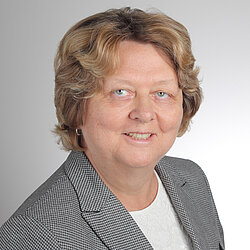Programme level: Bachelor's Degree Programme
Language of instruction: Latvian
Study form and duration: full-time - 6 semesters
Credits: 180 ECTS
Obtainable degree or qualification: Bachelor of Natural Sciences in Chemistry
Number of students accepted each year: State-funded study places - 25, study places for tuition fee - 130
Tuition fee per year (ac. year 2025/26): 2700 EUR for EU/EEA/Swiss citizens, permanent residence permit holders and their family members
Study location: Riga
Chemist is a highly sought-after profession and it is an occupation for life! Graduates of the programme receive a diploma recognized in Europe, confirmed by the quality label “Eurobachelor in Chemistry” awarded by the European Chemistry Thematic Network Association (ECTNA). In the second year, students can prove themselves and apply their knowledge by participating in research groups of faculty or institutes, acquiring the skills required in future employment: organic synthesis, modern instrumental analysis, food chemistry, etc. Immediately after studies, a chemist can start working and/or continue studies to obtain a master's degree at the University of Latvia or abroad.
Acting director

Anda Prikšāne
The mandatory part A of the programme includes basic courses in inorganic, physical, analytical and organic chemistry, as well as Biology, Physics, Higher Mathematics, Biological Chemistry, Methods of Instrumental Analysis, Kinetics and Catalysis, Atomic and Molecular Structure, Occupational Safety in Chemical Laboratories, whereas the limited elective part B provides the students with the opportunity to master the following courses: English for Chemists, Computer Use in Chemistry, Research Methods of Organic Compounds, Household Chemistry, Organic Substance Production Methods, Heterocyclic Compounds, High Molecular Compound Chemistry, Chromatography Basics, Coordination Compound Chemistry, Food Chemistry, Crystal Chemistry, Practical Analytical Chemistry, High Energy Chemistry, Nanochemistry, etc.
The bachelor's programme “Chemistry” gives students both extensive theoretical knowledge in various sub-sectors of chemistry, provides practical skills for work in chemical laboratories, as well as enables to apply theoretical and practical knowledge in scientific research.
Successful acquisition of the programme provides an opportunity to proceed with studies in the master's programme “Chemistry” at the Faculty of Chemistry, or to continue studies abroad. The education obtained at the faculty ensures the competitiveness of the graduates in the labour market, and the graduates of the Faculty of Chemistry usually are employed in chemistry-related fields. The graduates work in various scientific research institutions, public administration institutions, companies, educational institutions, quality control services of various branches: joint stock company “Grindeks”, joint stock company “Olainfarm”, Institute of Food Safety, Animal Health and Environment “BIOR”, Latvian Institute of Organic Synthesis, Latvian State Institute of Wood Chemistry, Latvian Environment Agency, National Environmental Health Centre, various food testing laboratories, municipality and corporate environmental protection services, radiation control laboratories, forensic and police examination laboratories, etc.
Competition criteria for persons who have acquired secondary education from 2004:
Version 1: CE in Latvian language; CE in English or CE in French, or CE in German; CE in mathematics*; CE in chemistry is taken into account only in cases when it has been taken; average score of all CEs passed by the person.
Version 2: CE in Latvian language; CE in English or CE in French, or CE in German; CE in mathematics*; CE in chemistry; average score of all CEs passed by the person.
* For persons who have completed secondary education before 2008, the centralized examination (CE) in mathematics may be replaced by the annual grade in mathematics indicated in the secondary education document (or the average grade in algebra and geometry)
Competition criteria for persons who have completed secondary education up to 2004 (excluding), as well as for those who have acquired secondary education abroad, or persons with special needs:
annual average grade in Latvian language and literature
annual grade in chemistry or mathematics (or average grade in algebra and geometry)
annual average grade in mandatory subjects
Special conditions: the secondary education document must have a passing (not lower than 4) annual grade in physics, chemistry and mathematics (algebra, geometry);
Additional points: The participants of UL School of Young Chemists in 2023, who have received a certificate, obtain additional 20 points;
Advantages: to the 1st–3rd stage and diploma winners of Latvian National or International Chemistry Olympiads in 2022 and 2023, or to the 1st–3rd stage winners of the 45th Scientific Research Conference of Latvian Secondary School Students in the field of chemistry in 2022 and 2023.

 CONFERENCE
CONFERENCE